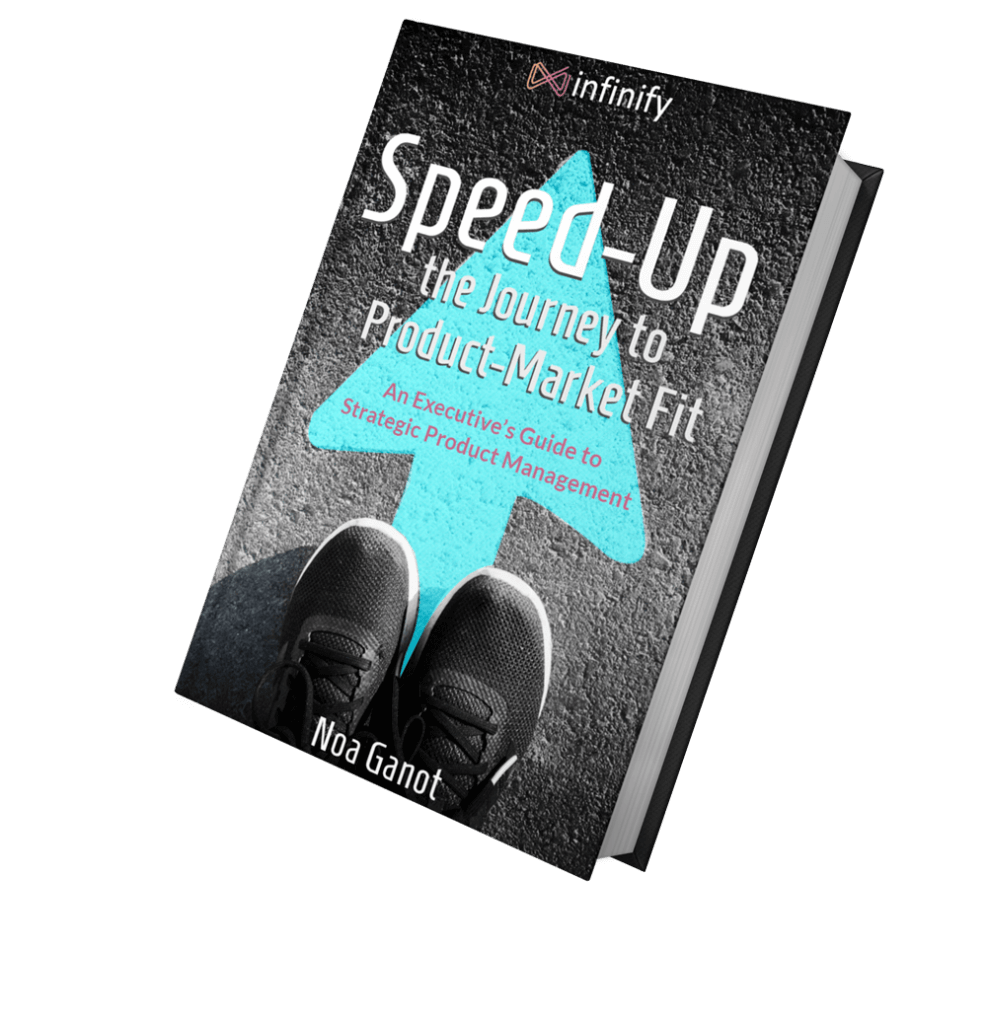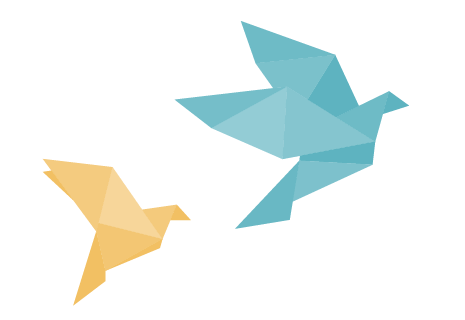When SVPG first posted about their upcoming ‘Coach the Coaches’ session, several people reached out to me and shared it with me even before I got to it myself. Honestly, it felt like it was written specifically for me. I applied, of course, for one of the 50 seats they allocated and was so excited to hear that I was accepted. After all, I needed a good reason to get to London 😉
I soon found out that I was going to be the only one from Israel attending the workshop. I immediately knew that it meant that I must listen even more carefully than I intended to since I have the responsibility of bringing Marty Cagan’s insights back home. And so I found myself writing two sets of notes during the session: one for myself, and another one for all of you – since I very quickly realized that I wouldn’t be able to remember all the good stuff I wanted to share without writing everything explicitly.
My Israeli readers – this article is dedicated to you. But other than the first section, there is nothing Israeli about it. It brings the best practices of the greatest product companies out there to all of you, based on what I heard from Marty and the other SVPG partners during the workshop.
The notes are listed here in no particular order of importance and include my own interpretations and conclusions on top of what the SVPG partners have shared directly.
The Israeli Perspective
In London, I felt that Israel truly is the startup nation. Or perhaps that’s my own perspective because of the customers I’m working with. Having read all of SVPG’s books before, some of the things written there felt less relevant to me. When I participated in the live discussions about the same topics, I realized that some of the gaps are due to perspective: So many of the companies I work with (either the few that I am personally consulting to, or among the CPO Bootcamp participants) are startups or scaleups, and only a small number are larger corporations.
But in London, I realized how different this is from what the overall industry looks like – for good and bad. Personally, I feel grateful for working in such an innovative ecosystem, but it definitely means that the challenges we are generally facing are different than the ones larger companies are facing.
To put things in perspective, these large companies are not CheckPoint or Wix’s size. They are not even Amazon and Google which were born as tech product companies and are now large corporates (that have major product centers in Israel as well). One example that made me realize that I live in a startup nation was when one of the coaches attending the workshop shared that they were working with the IT department of one of the largest airlines to transform it into a great product organization. Nothing wrong with that, of course, (and something we will all probably benefit from!) but very different from the majority of the tech industry here in Israel.
Management and Coaching
Anyone who has read ‘Inspired’ knows that Marty is a big believer in coaching. I guess we were a biased audience to agree with it, as we were a room full of product coaches at various levels 🙂
Marty listed three levels of coaching:
- Discovery coaching – primarily focused on product teams, helping them be great at the discovery work that is at the heart of what they do
- Leadership coaching – focused on helping product leaders thrive and lead the product organization effectively as well as the product strategy in the right direction
- Transformational coaching – working with the c-suite on changing the mindset and building a great product culture in the company
Prior to the workshop, Marty asked each and every one of us where we were on this outline. It was easy for me to define myself as a leadership coach, although with the few companies that I work with personally I also do quite a lot of transformational coaching. Luckily, startup nation and all, I get to work with companies that are still fairly flexible regarding culture and mindset.
Marty said that anyone in the product team needs to get coaching, including the leaders themselves. In fact, all of SVPG’s partners got coaching throughout the years, and so do I to date. To me, coaching is a way of life that always helps me rise to the next level.
At the more practical level, Marty mentioned that first-line managers should spend 80% of their time coaching and staffing, while product leaders at higher levels should do it about 20% of the time and spend the rest on strategy and vision. Of course, if you are the single product person in a 20 people company, and you serve both as the head of product and as the only product IC, this guideline is less relevant. You also need to remember that Marty’s definition of a product team includes also engineers and designers, where this guideline might seem more reasonable even at smaller companies.
One thing you shouldn’t do, at any level, is to assume that if you hired great people they will be fine. Great people still need to be managed. A group of experts still doesn’t make a great team. It’s your work as a manager to create that. Besides managing them, if you want them to keep being great, they still need to get coaching. Remember that what you need from them changes over time and as they grow, so they will always need to develop into areas they haven’t mastered before.
The Importance of Discovery
The first day of the workshop was dedicated almost solely to discovery. Marty emphasized time and again how important it is, but on the other hand how companies tend to diminish this work, and the bad impact it would have on results.
We debated whether you need to spend more time on problem discovery or solution discovery. This is where again I saw the startup nation in action – in startups the problem is often unclear, and takes very long to discover. But if you take into account most of the product work done in the world, the problem, as Marty stated, is much clearer.
Whichever type of discovery you do, I use this as a constant reminder that there is always more to discover. Even when I work on my own products (primarily Infinify’s programs), and as a product person who teaches these things, I need to constantly remind myself not to skip this important step.
Don’t Fall in Love With the Process
It turns out that Marty loves quotes, as many of the slides he shared included quotes from the leaders of the best companies out there. I also love quotes, by the way. They are a very useful tool to clearly articulate one’s thoughts in a memorable way that will resonate with your audience.
One quote that I knew immediately that I was going to use myself was by Elon Musk. It goes like this: “The problem is that at a lot of big companies, process becomes a substitute for thinking”.
Unfortunately, I have seen this problem even with much smaller organizations than the ones you would consider big companies. It is part of human nature. We all like to feel that the hard part is behind us. That we found a way. Especially in a world that is so complex with so many unknowns such as the tech world. Once we found something that works, we simply want to use it again. We have so much to tackle that if we don’t have to, we wouldn’t go back to see if it truly still works for us.
Please make it a regular habit to take time and think in retrospect about processes, projects, or even time periods that have finished. Make it a habit to regularly think about what works for you and your company, and what doesn’t. It’s highly recommended to challenge every assumption you have about how things “should be”.
Note that even if you do it regularly, look at the past week every week, for example, it helps to also look at it at different time intervals. If you do it weekly, for example, also add a quarterly retrospective to look at the bigger picture. You will see different things this way.
Empowered Teams
Empowered teams is such a hot topic ever since Marty coined the term. Everyone wants to build empowered teams. The product leaders I work with often define it as one of the goals of working with me. It’s a great concept, but like any other good idea, I see people again falling in love with black and white guidelines instead of applying critical thinking and making it work for them.
There were two things that Marty said that clearly articulated the key points of this confusion. The first was that ‘empowered teams’ is a spectrum. This resonated with me since I always say you can constantly strive to be more empowered – if you still feel there is a problem – but it’s not an all-or-nothing approach. In some teams, it’s easier to let them run independently, while others might still need more guidance. In some organizations, it’s easier to separate the teams than in others, because of the nature of the product and technology, for example.
Moreover, in some cases, if you try to change an organization to something too far away from where they are now, it simply wouldn’t work. Change takes time and is a process. It’s only once they moved to the beginning of the spectrum of empowered teams that they might be ready to move to the next level of empowerment. It also has to do with trust that needs to be built along the way.
The other thing Marty said that perfectly nailed the confusion that I see, is that empowered teams do not mean that they get to work on whatever they want. It does not imply bottom-up leadership. Leadership still has to lead the way. Putting it in more concrete terms, if you work with OKRs, leadership still needs to provide the objectives (as well as the vision and strategy that led to these objectives). As a product leader, building empowered teams is not about taking the load off of you. You still (and forever will) need to steer the ship.
Summarizing 3 days of intensive discussions with the best product minds out there into a single article is mission impossible, so I’ll continue next week with additional insights on strategy and leadership. Stay tuned.











